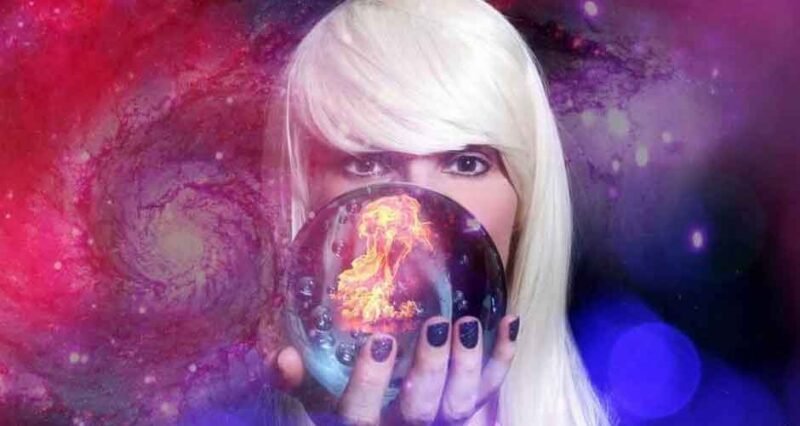
Psychic abilities, often portrayed as mysterious and transcendent, have been a subject of fascination and controversy for centuries.
Claimed by individuals who profess extrasensory perception (ESP) or a connection to supernatural forces, psychic phenomena elicit a range of reactions from fervent belief to steadfast skepticism. This article explores the enigma surrounding psychic abilities, delving into the controversies, scientific perspectives, and societal implications that shape the discourse on the mystical realm of psychics.
The Diverse Landscape of Psychic Abilities:
Psychic abilities encompass a broad spectrum of claimed talents, including clairvoyance (seeing the future or distant events), telepathy (mind-to-mind communication), precognition (predicting future events), psychometry (reading information from objects), and mediumship (communicating with spirits). While these abilities are often bundled together under the umbrella of “psychic,” it’s crucial to recognize the diversity and complexity within this field.
Historical Perspectives and Cultural Influences:
Throughout history, diverse cultures have embraced the concept of individuals possessing supernatural gifts. Shamans, oracles, and seers were revered figures in ancient societies, providing insights and guidance believed to originate from otherworldly sources. Cultural beliefs and religious traditions have significantly influenced the acceptance or rejection of psychic abilities, shaping the narrative around these phenomena across different civilizations.
Scientific Skepticism and the Burden of Proof:
In the realm of science, skepticism toward psychic phenomena has been pervasive. The scientific method relies on empirical evidence, reproducibility, and verifiable results, criteria that many psychic claims fail to meet. Critics argue that the burden of proof lies with those making extraordinary claims, and until substantial, replicable evidence is presented, the scientific community remains unconvinced.
Parapsychology and Experimental Research:
Parapsychology, a field dedicated to the scientific study of paranormal and psychic phenomena, has sought to bridge the gap between the mystical and the empirical. While some parapsychology experiments claim positive results, often using high-end ghost hunting equipment, the overall scientific community remains divided on the studies’ reliability and validity. Critics often cite methodological flaws, statistical issues, and the lack of rigorous controls as reasons to question the findings.
The Skeptic’s Perspective:
Skeptics emphasize the importance of critical thinking and the scientific method in evaluating psychic claims. They argue that anecdotal evidence and personal testimonials, while compelling to some, do not constitute robust proof. Many skeptics assert that psychological factors, cognitive biases, and the human tendency to find patterns in randomness can explain apparent psychic experiences without resorting to supernatural explanations.
The Placebo Effect and Personal Belief:
Psychic readings and experiences may, in part, be influenced by the placebo effect and personal belief. Individuals seeking psychic guidance may be susceptible to suggestion, and the power of suggestion can shape perceptions and interpretations of events. Understanding the role of psychological factors is essential in unraveling the complexities of psychic phenomena and distinguishing between genuine abilities and subjective experiences.
Ethical Considerations and Consumer Vulnerability:
The commercialization of psychic services raises ethical concerns, particularly regarding vulnerable individuals seeking guidance in times of uncertainty. Critics argue that exploitative practices, such as exorbitant fees, false promises, and the potential for emotional manipulation, can harm those already facing challenges. Regulating the psychic industry to protect consumers has become a focal point in the ethical discourse surrounding psychic services.
Cultural Impact and Media Representation:
The portrayal of psychics in popular media, from television shows to movies, often shapes public perception. While some productions depict psychics as benevolent guides, others emphasize the darker, more sensational aspects of the paranormal. Media representation contributes to the polarization of attitudes toward psychic abilities, influencing societal views and perpetuating stereotypes.
Conclusion:
The enigma of psychic abilities persists in a complex interplay of historical beliefs, scientific skepticism, and cultural influences. As individuals navigate the labyrinth of psychic phenomena, a nuanced understanding that acknowledges both the allure and controversy is essential.
While some find solace and guidance in psychic experiences, others approach these phenomena with a discerning eye. The psychic enigma remains a multifaceted puzzle, challenging our understanding of consciousness, perception, and the mysteries that lie beyond the boundaries of conventional knowledge. Want to know more about psychics? Go through our resources and get in-depth detail at News Observer.

